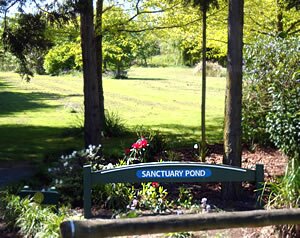[ Return ]
New life within a sustainable community - why I moved to Motueka
January 23rd, 2010
By David Armstrong
I've lived for several decades in Christchurch (population about 400,000) but have now moved to Motueka (pop officially around 7000 but probably lots more). Apart from the obvious attractions of a milder and softer climate, a more vibrant, greener landscape, proximity to the sea, and the ability to walk or bike safely to most local destinations, plus the desire to pre-retire in a more laid-back setting, it was the philosophy of community that led my wife and me here.
As Western society's blind march to an unsustainable future - in both economic and environmental terms - steadily becomes the reality this country faces, I have become more convinced than ever that the only sensible answer is living within communities.
Without meaning to be disparaging, by "communities" I don't mean communes or small, isolated groups of dropouts. I mean communities which are:
- large enough to provide all the basics for a good standard of living and entertainment and a productive future for coming generations,
- but small enough for its participants to be able to exist without dependency on large amounts of resources outside the community,
- and small enough for the whole of the area to be available and reachable by members without the absolute need for cars (or gumboots),
- and (crucially important to me) small enough that willing individuals can make a difference to the well-being of the whole community, rather than being just a tiny tadpole in a vast lake.

So with this idea at the back of our mind, my wife and I chose Motueka as our new home. Wonderful climate and environment, friendly people and, crucially, everything we'll really need within a few square kilometres, to share with the other 6998 residents.
The fourth factor in the list - being able to make a real difference - was reinforced to me a few days ago when exploring some of the parks and walking areas of our new home town. We came upon a wetland park near the estuary, a lovely tranquil setting with pukekos, ducks and tuis enjoying natural-looking ponds and large native trees.
A visitor information board within the park told of its history - how it remained a swamp while the town grew, but a resident (doubtless with a bit of money, but more importantly with a generous community spirit) gradually reclaimed and fashioned it, planted it out, and left it for public use (along with some adjacent sports fields).
And I considered how this is made possible within a town this size, and how such gestures make thriving communities what they are. Within real communities, people value other people's contributions.
In Christchurch there are some much appreciated reserve areas gifted for public use by early owners, but the bulk of the amenities that I used and was aware of were council owned and maintained; nice but anonymous. They were small parts of the city, which some residents knew about but most never frequented. When a community gets to that size (I suggest perhaps bigger than about 50,000 people) then much of what is contributed by members is lost in the urban spread and the busy commerce that makes up city living.
This verbal ramble is not meant to belittle cities and the work of people who live within them. I did my best while I was a city dweller for all those years, but I doubt that many people noticed or benefited. It will be interesting to see if living in a smaller integrated community will provide more ultimate satisfaction and worthwhile participation. At least I'm sure it will provide a more sustainable way of life.
>> , to be added to the page. [If this link doesn't work, use this form instead]
[ Return ]